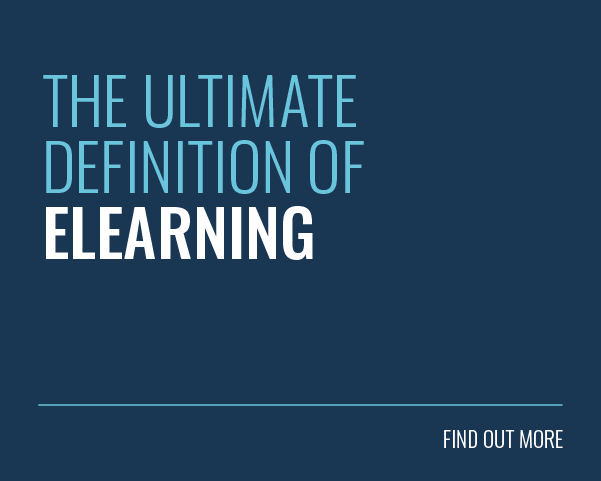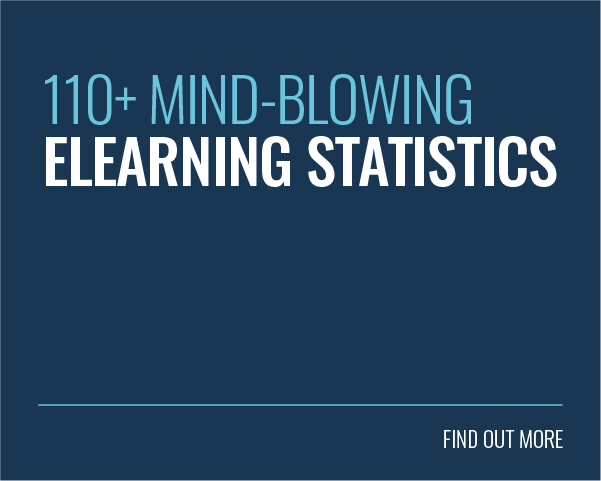 What is knowledge assimilation in eLearning and what are the typical causes behind it? Our article gives you all the answers!
What is knowledge assimilation in eLearning and what are the typical causes behind it? Our article gives you all the answers!
Most online learners already have an ingrained mindset when they begin your online learning course. This consists of personal cognitions, past experiences, and opinions that shape who they are and how much they’ll learn. These biases can hinder or prevent knowledge assimilation from your eLearning.
In fact, they may even have certain learning behaviours that prevent them from fully absorbing and retaining the subject matter. Knowledge assimilation and retention becomes more challenging when online learners exhibit the following learning behaviours:
1. Inability To Understand Or Acknowledge The Training Objectives
This occurs when vague or absent training objectives become a learning obstacle. It may also be the result of a learners’ lack of motivation.
They simply don’t want to invest the time or effort into understanding, let alone following them, in order to achieve the desired learning outcome. As a result, online learners are unable to assign meaning to the subject matter and assimilate the key takeaways.
2. Unwilling To Identify Their Strengths And Weaknesses
Few people like to admit that they’re wrong or that they exhibit certain weaknesses. But the fact is that we’re all human, and we all have our faults. The thing that sets successful online learners apart from the rest is acknowledging areas for improvement and rectifying the situation.
Online learners must be ready to identify their strong suits and weak points, especially those that stand in the way of the learning process. By doing so, they can seek out relevant information and focus their efforts to personalize the learning process, thereby improving knowledge retention and recall.
3. Isolate Themselves From Social Learning Environments
Online collaboration and peer-to-peer interactions are a crucial part of knowledge assimilation. Especially in the modern era where online learning communities are commonplace.
Social learning gives online learners the chance to share experiences with their peers to improve their understanding of the topic, rather than trying to struggle on their own to find online training resources that can clarify confusion. Introverts tend to display this learning behavior more often than their extrovert counterparts.
4. Disregarding The Viewpoints Of Their Peers
This ties into the last learning behavior, but pertains more to an individual’s attitude during the online collaboration process. Online learners who exhibit this behavior may be willing to interact in social learning environments.
However, they completely disregard the viewpoints of others and devalue their input. They may even disrespect their opinions and make peers feel uncomfortable or isolated, thereby creating hostile learning conditions that cause other online learners to miss out on valuable knowledge.
5. Overall Lack Of Mental Focus And Drive
Some online learners simply lack the focus and drive to assimilate the information, which can be attributed to a variety of factors. One of the most common reasons is that they are unaware of the benefits. Another is that the information isn’t presented in a way that’s engaging or easily digestible.
There is a lot on their minds, and online learners aren’t able to concentrate on the task at hand. Thus, the main ideas and concepts are less likely to slip through the working memory filters.
6. Unwilling To Use The Available Online Training Resources
You’ve gone to great lengths to provide online learners with eLearning activities and modules that involve different learning preferences. You’ve even created a list of external links they can use autonomously. The trouble is that they are unwilling to use these online training resources to broaden their understanding.
In some instances, this is due to a general lack of motivation. There may also be a miscommunication to blame. For example, online learners are unable to access the online resources because they aren’t tech-savvy, or they cannot see the connection between the eLearning activities and practical applications and benefits.
Therefore, it’s important to include a brief explanation of how online training resources relate to the real world and why online learners need the information.
7. Unable To Work Autonomously To Complete Learning Goals
Some online learners are proactive self-starters who don’t need any coaxing whatsoever. They are fully aware of the benefits of active participation and they go out of their way to engage in online discussions and help their peers. Then, there are others who cannot work autonomously to achieve their learning goals and objectives.
They often require a set schedule that outlines every step of the eLearning course. Even then, these online learners may not be able to keep pace. You can encourage them by breaking the eLearning course into smaller modules (otherwise known as microlearning) or milestones, complete with short-term goals.
Don’t forget to mention the ultimate learning goal so that they can set their sights on the finish line.
8. Allow Challenges To Become Learning Hurdles
Obstacles are a fact of life. Online learners cannot let them stand in the way of absorbing the information. One of the most intrusive learning behaviours is having a defeatist mindset.
Mistakes turn into reasons why they are unable to achieve their learning goals and online learners allow challenges to hinder their progress instead of viewing them as opportunities to grow and learn new things. For example, trying to solve a problem or overcome a hurdle takes them down a self-guided learning path.
Top Tip To Improve Knowledge Assimilation And Minimize Negative Learning Behaviours
Many of these learning behaviours can be minimised or eliminated altogether by researching your audience and individualising the online learning experience. After all, online learners need to feel as though the eLearning course is intended for them and their personal training goals.
Explore their preferences, backgrounds, and past experiences to identify hindering beliefs or mindsets. Then develop online training resources that tap into their personal motivations and provide real-world value.
Final Word:
Today we have talked about knowledge assimilation in eLearning. Negative learning behaviours may not be a quick fix. However, you can help online learners to adopt a more positive perspective by personalizing the online training content and soliciting their feedback.
Another way to encourage and motivate online learners is to incorporate social learning environments that offer peer-based support.
Want to learn more tips on how to increase knowledge retention and assimilation in eLearning? Check out our bumper resource, ‘The Ultimate eLearning Instructional Design Guidebook‘.








